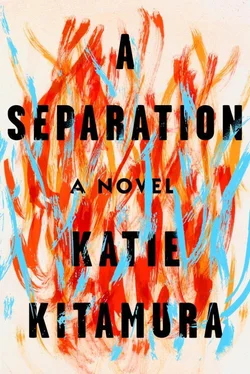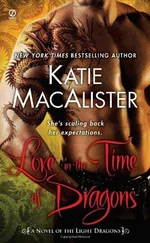It was the real thing, and yet I was certain they were aware of how dramatically the light fell on them, how the balcony was framed against the night. Having paid a premium for the suite, for this hotel, so evidently designed for romance, they would have been aware of its theatrical possibilities. Every romance requires a backdrop and an audience, even—or perhaps especially—the genuine ones, romance is not something that a couple can be expected to conjure by themselves, you and another, the two of you together, not just once but again and again, love in general is fortified by its context, nourished by the gaze of others.
As for this particular context, I thought, it had also been Christopher’s room, and he must have stood on the balcony himself, in the very place where the passionate couple now stood, alone or perhaps with someone else. I remained at the end of the jetty a moment longer and watched the couple’s long embrace, I watched until at last she took him by the hand and led him into the bedroom, closing the door behind them. Then I walked back to the terrace and into the lobby. The young woman was behind the desk. I nodded to her as I entered the lobby, she raised her eyes and then called to me.
Have you heard from him?
I stopped. When I turned, she was looking down at the floor, it was as if she had been unable to keep herself from asking the question and now regretted it. Then she raised her eyes defiantly and looked directly at me with her frank gaze. We had nothing in common, there was nothing between us. And yet I was certain that we were both waiting for the same man, her question only furthered the belief. I shook my head. She looked both disappointed and relieved, I understood at once that it would have been a blow to her if I had said yes, that I was going to meet him, that he was upstairs in my room at that very moment.
He’ll turn up, I said. She nodded. Has he done this before? Is this what he is like? Essentially unreliable? Does he simply disappear, without a word? The questions as clear as if she had spoken them. I did not want to comfort her for troubles that were not my own, that it was not my business to know. But for some reason I continued, although she was silent, I felt as though I needed to say something. Lately, he has not been himself. She flinched, I saw that the words were disagreeable to her, perhaps she thought I intended to imply that the encounter—whatever it might have been, if there had been one at all—was out of character, weightless, a meaningless aberration.
He has not been himself. She had become sullen again. A flash of anger darkened her features. It was possible that for once Christopher had bitten off more than he could chew, that she was more than he’d bargained for. Perhaps he had fled this woman, perhaps that was the reason for his absence—but then why leave his belongings behind, why not simply depart or change hotels, there were any number of establishments in the area that would have served just as well. And Christopher, in the way of serial womanizers, never had difficulty shaking off a woman.
After a moment, I asked her what her name was and she hesitated and then told me, Maria. It is nice to meet you, I said, and when she did nothing more than give another curt nod, her eyes averted, I turned and left. I thought to myself as I went that I had bungled the encounter somehow. But how could I have known that she would be so emotional? I felt a surge of relief, I did not envy her the tumult of feeling, the jealousy and uncertainty, she evidently did not know whether to feel outraged or ashamed. And despite everything, she remained hopeful, I could see it in her face. It was a terrible thing, to love and not know whether you were loved in return, it led to the worst sensations—jealousy, rage, self-loathing—to all these lesser states.
3.

I called Isabella the following morning and told her that I had not found Christopher, that he had not yet returned to the hotel. She asked me if I was not worried. I told her that I wasn’t. Christopher had come to Greece to do research, he might easily have arranged a short trip to a neighboring village, or returned to Athens to consult some archives. Research! She laughed. What kind of research?
Christopher had published his first book when he was still in his twenties, and it had been received with great enthusiasm by the publishing world and also the general public, briefly appearing at the bottom of the bestseller list. It had been an unusual book, even idiosyncratic, a work of nonfiction about the social life of music—its role in rituals and ceremonies, the way it demarcated public space, its function as a form of religious and ideological persuasion.
The book was wide-ranging and digressive, and the writing had much of Christopher’s personal charm. One moment he was comparing the relative intimacy of chamber music to the pomp of orchestral music, the next he was detailing his experience as a teenager frequenting various London nightclubs. He wrote about the music of the Third Reich, about the acoustics at the Gewandhaus, he went to King’s College chapel to listen to Handel’s cantatas (he had attended King’s as an undergraduate, I assumed the act, accompanied by the music and then the writing, was a recuperation of sorts).
True, the book was not especially well researched—the few critical reviews had pointed out some glaring errors and elisions, but by and large these dissenting voices could be comfortably categorized as such. After all, he was not an academic and the book had been written for a general readership. Christopher himself was something of a generalist. What he was good at—what the book had achieved with impressive and seeming ease—was drawing connections between an array of disparate sources, and making the material cohere in the prose.
I didn’t know Christopher at the time of the book’s publication. When I met him he was occupying the relatively comfortable life that is made available to relatively successful authors. He was invited to give lectures, to write reviews for various newspapers, his book had been translated into several languages. He was offered a teaching position at some university, which he declined—he didn’t need the money, he was writing a second book, which was under contract to his publisher, and which he was already late in delivering.
He was working on it when we met. A procrastinator, he was prone to talking about the project at length, almost making a little performance of it, and I soon realized that he preferred talking about the book to writing it. He described it as a study of mourning rituals around the world, a work of cultural and political science that would encompass both secular and religious ceremonies, delineating—I think that was the word he used—a landscape of cultural and historical difference.
It was a strange project for a man who had hitherto lost nothing of significance, whose life was intact in all its key particulars. If he had cause for grief, it was only in the abstract. But he was drawn to people who were in a state of loss. This gave people the mistaken impression that he was a sympathetic man. His sympathy lasted as long as his curiosity, once that had gone he suddenly withdrew, making himself unavailable, or at least less available than people might reasonably have expected, given the sudden and violent intimacy he had forced upon them in the first place.
But that was his manner, his way of being. He was a gifted writer but something of a dilettante in his approach to his career—in the five years we had been married, I had never known him to go to a library, even during the extended periods when he was preoccupied with his research. No doubt this was why Isabella sneered at his work; despite its relative success, she did not take it seriously, she would have preferred for him to have a career in law, finance, even politics, she liked to say that he had the wiles and charisma for it.
Читать дальше












